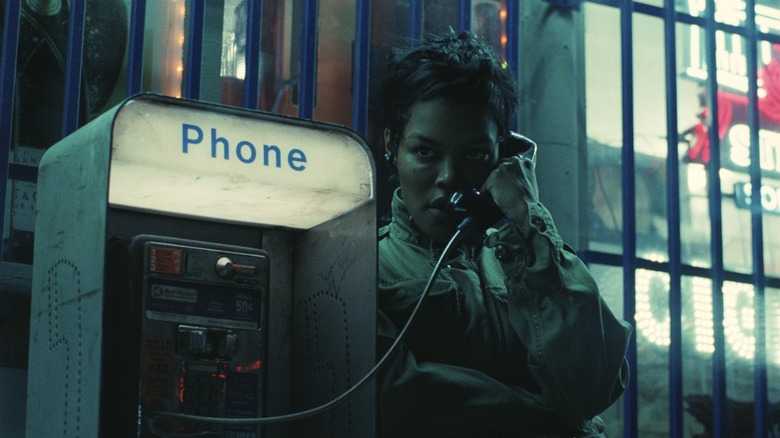Editor’s Note: This review contains spoilers for “One Battle After Another.”
“One Battle After Another” is the blockbuster of the year, flaunting a cast of recognizable names such as Leonardo DiCaprio, Sean Penn, and Regina Hall, and rising newcomer Chase Infiniti. I was invited to an early screening of the film this past Tuesday, and while blockbusters aren’t usually my thing, I found myself on the edge of my seat the entire runtime.
Director Paul Thomas Anderson (Boogie Nights, Licorice Pizza) takes a step out of his comfort zone in this comedy action thriller following the story of Bob (Leonardo DiCaprio), a washed-up revolutionary, and Willa (Chase Infiniti), his high-spirited teenage daughter. While Anderson’s filmography typically prioritizes character-driven, artfully crafted visuals, and historically contextualized plots, “One Battle After Another” is a tale of present-day politics, activism, and family that should be watched and understood through the lens of our current political climate.
The film’s most arresting force is not its ensemble cast nor Anderson’s stylistic experiment, but the character of Perfidia Beverly Hills, played by Teyana Taylor. Beyond being a supporting character, she is the film’s moral and emotional axis, a figure whose contradictions — revolutionary and opportunist, lover and betrayer, mother and deserter — expose the fragility of intimacy and loyalty in ways both deeply personal and universally human.
The name “Perfidia” itself is no accident; the root word “perfidious” is an adjective describing the deceitful and untrustworthy. Her naming foreshadows the betrayals that she commits, which guide her trajectory. But the brilliance of her character is that Perfidia is not reduced to treachery alone. In her emotional depth and complexity, she embodies the paradox of survival and sacrifice.
In the first act, Taylor plays Perfidia as a strong-willed femme fatale. A member of the French 75, a militant leftist revolutionary group, Perfidia commands the screen with total confidence. During missions, Perfidia fiercely uses her intimidation to capture oppressive authorities, such as immigration officers and politicians, with fierce intimidation. She also uses her seductive power to manipulate those around her, both for the revolutionary cause and personal gain.
Although Perfidia passionately preaches the group’s revolutionary foundations, she often betrays those ideals for personal gain, such as when under arrest or in her sexual relationships. Taylor plays these betrayal scenes not with cold calculation, but rather with desperation — Perfidia is simultaneously distraught and resolved. Her choices are damning but also human, exposing the cost of inhabiting a role where ideals constantly collide with the instinct to live another day. In this direction, Anderson refuses to frame Perfidia as a one-dimensional traitor. The betrayals she commits force the audience to reckon with the thin line between conviction and survival and complicates, rather than diminishes, her character.
Perfidia’s sense of self-preservation further extends to her personal relationships. Unlike many female characters in blockbuster cinema whose maternal instincts are often foregrounded, Perfidia sees motherhood as another domain she cannot fully inhabit without sacrificing her autonomy. In the tail end of the first act, after having a daughter, Willa, with her partner Bob, Perfidia abandons them, declaring that she must remain dedicated to the revolution and refuses to be tied down by domesticity. She will not be confined, whether by ideology, loyalty, or love.
This mother-daughter tension reaches its height in a quiet moment of reflection during the last act. The audience can see clearly the complexity of Perfidia’s maternal instincts: She is not absent from her child’s life out of indifference, but out of necessity, fear, and perhaps an inability to reconcile freedom with responsibility. Though her choices appear cold and even ruthless, they are guided by the harsh survival instinct within her political and personal lives. This final scene transforms Perfidia’s coldness from simple cruelty into a layered portrait of a woman whose devotion is conditional, complicated, and profoundly human.
“One Battle After Another” is more than just a spectacle of action, comedy, and political intrigue; it is a study of the human costs of ambition, loyalty, and freedom, all distilled in the character of Perfidia Beverly Hills. Perfidia refuses to be contained by a single archetype — she is a woman whose choices challenge both the characters around her and the audience’s sense of right and wrong. She reminds us that the most compelling battles are not always fought on battlegrounds but within ourselves.
Rating: 4.5/5 stars










